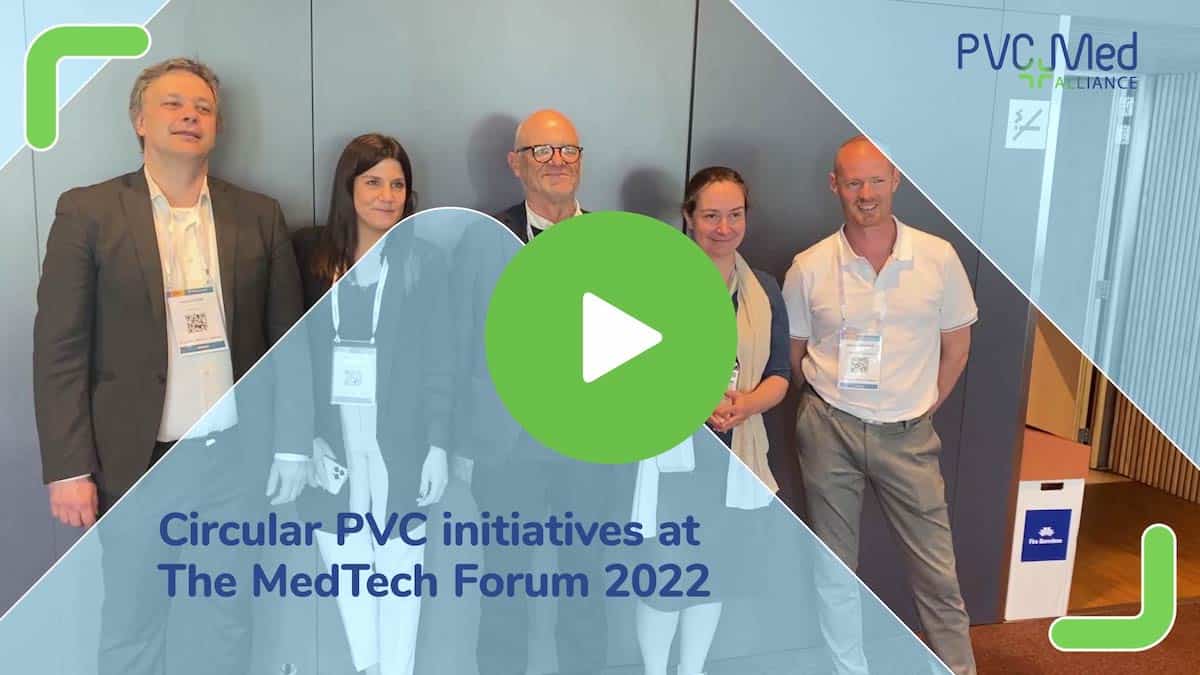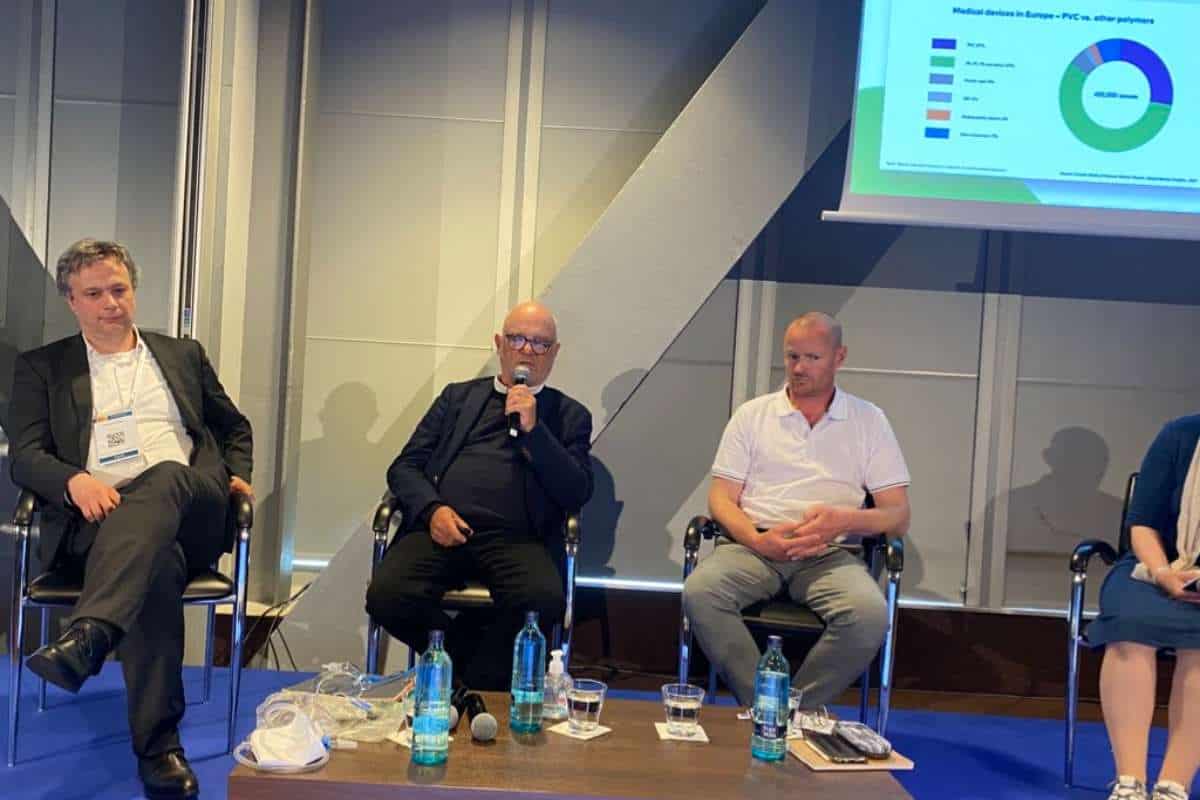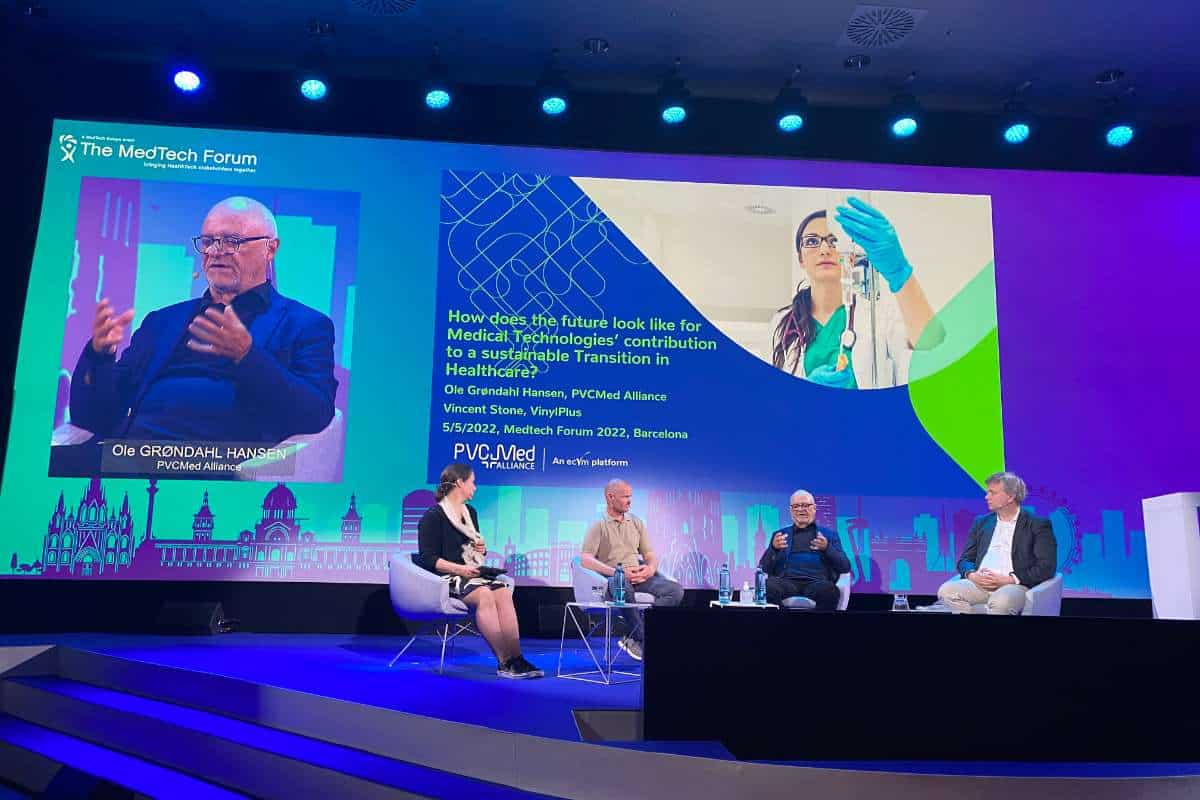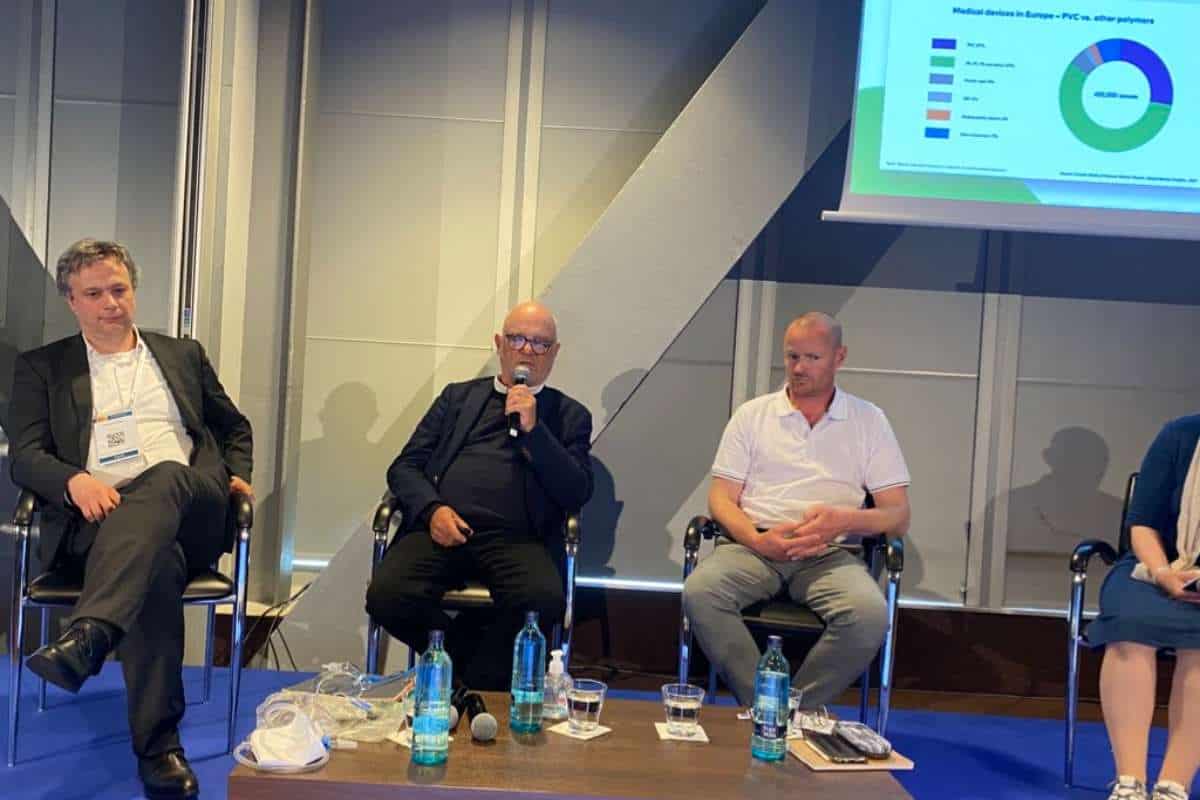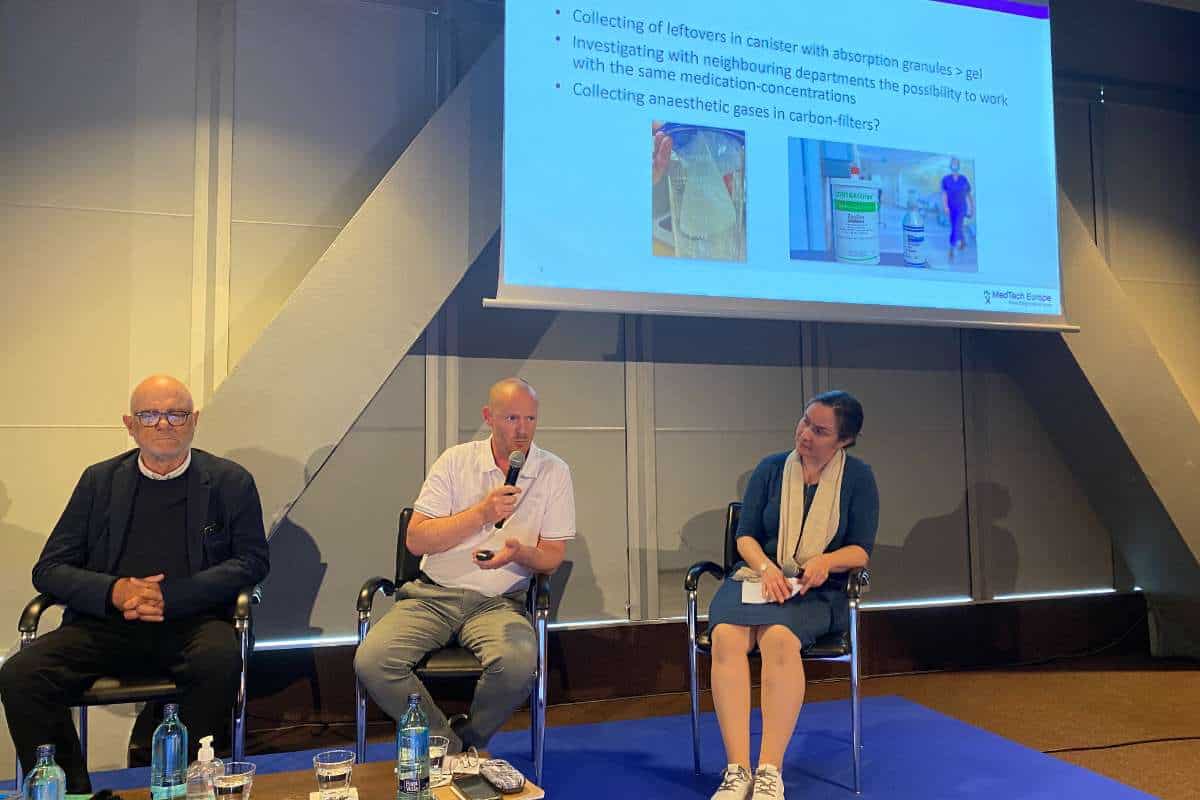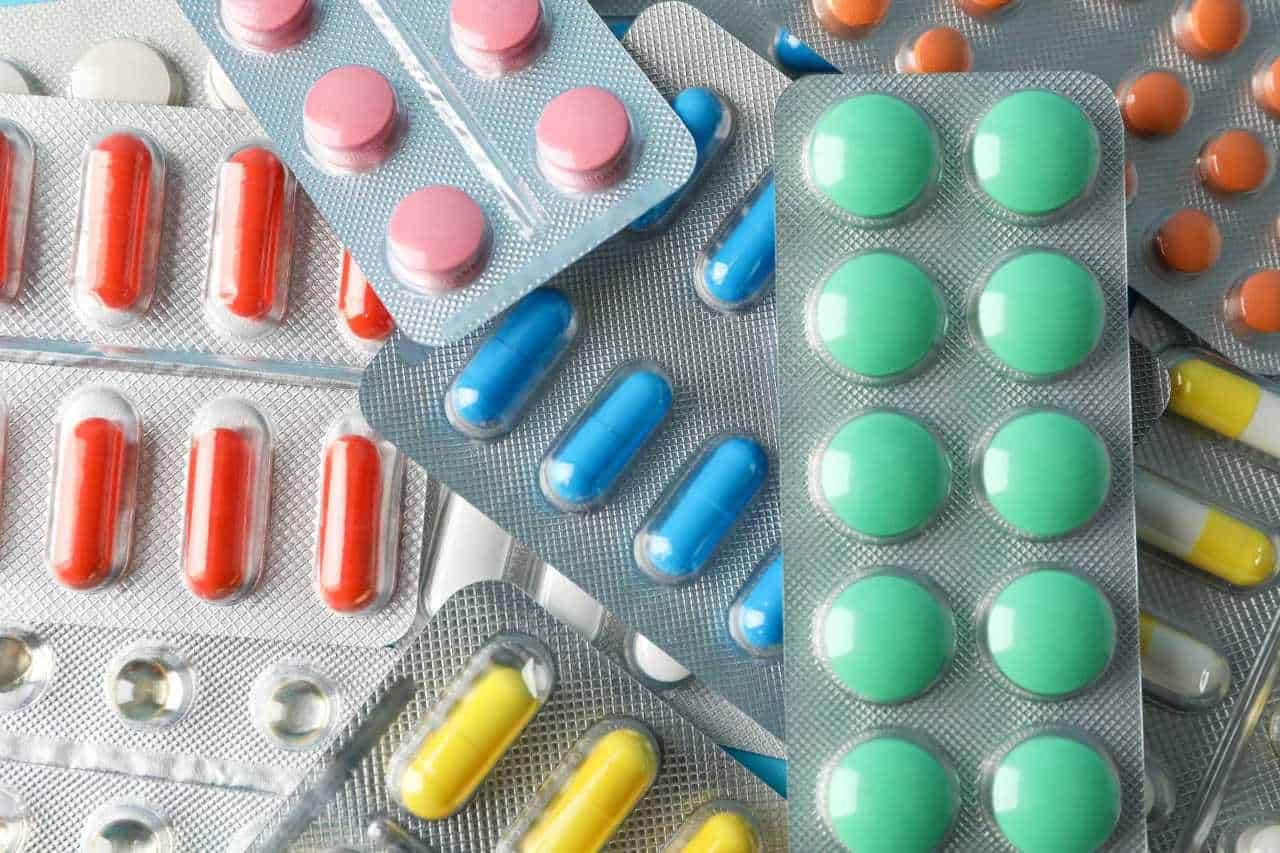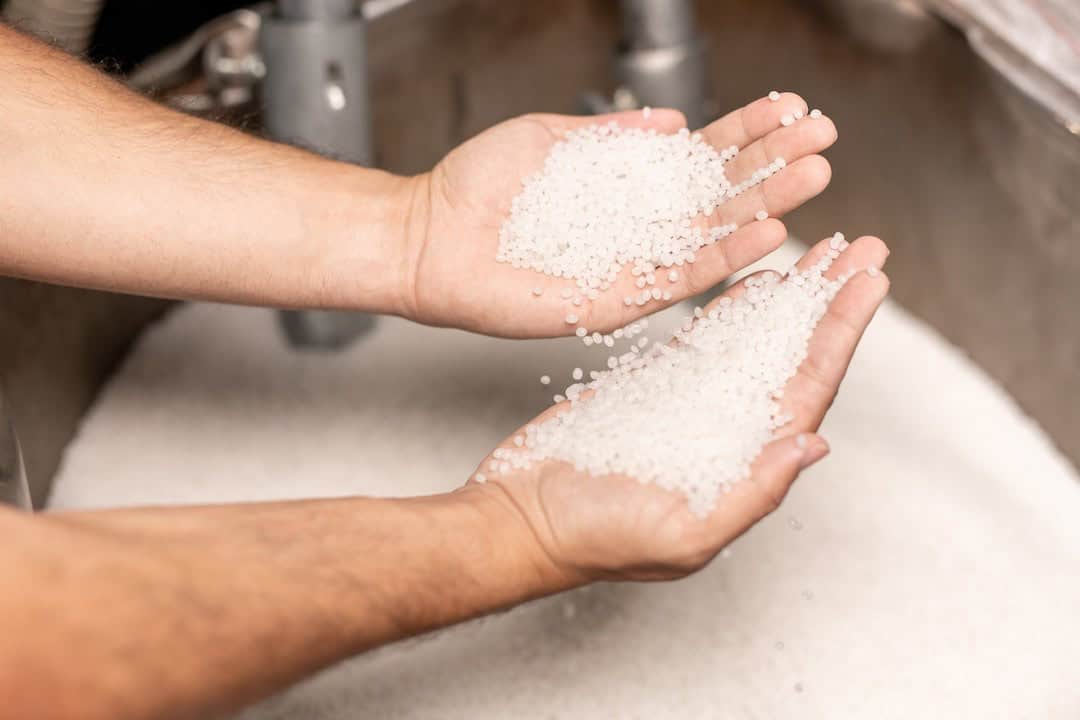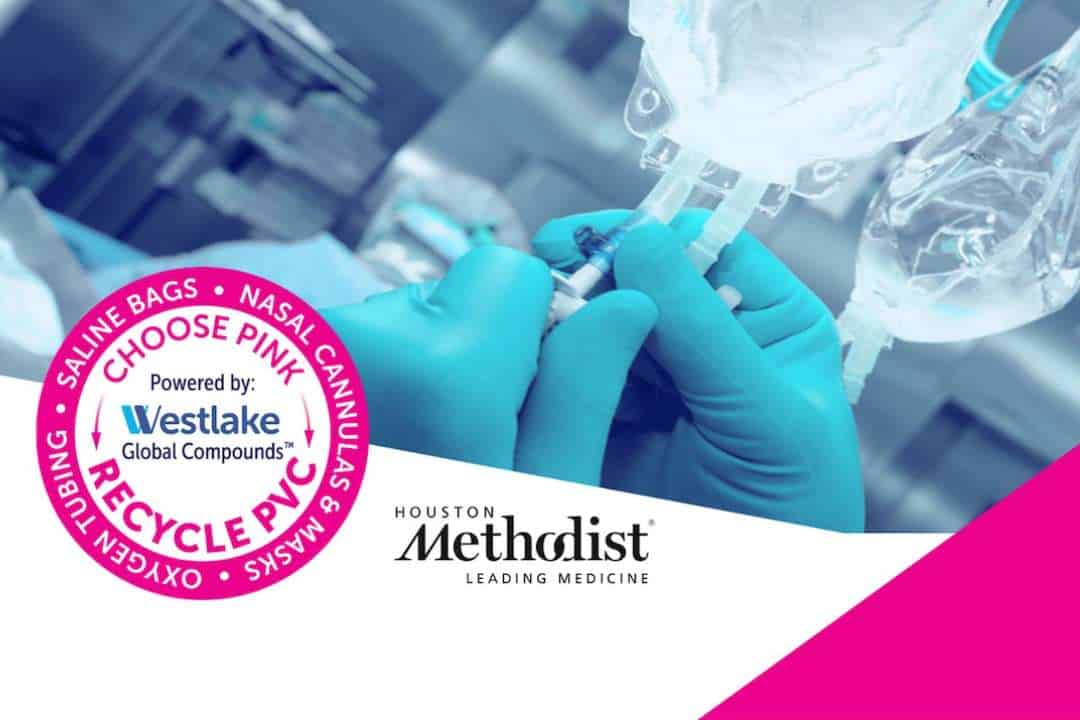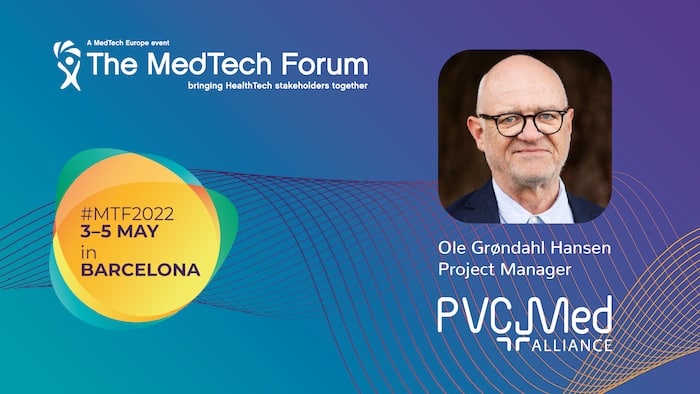
Towards greater sustainability in healthcare – MedTech Forum 2022
19/04/2022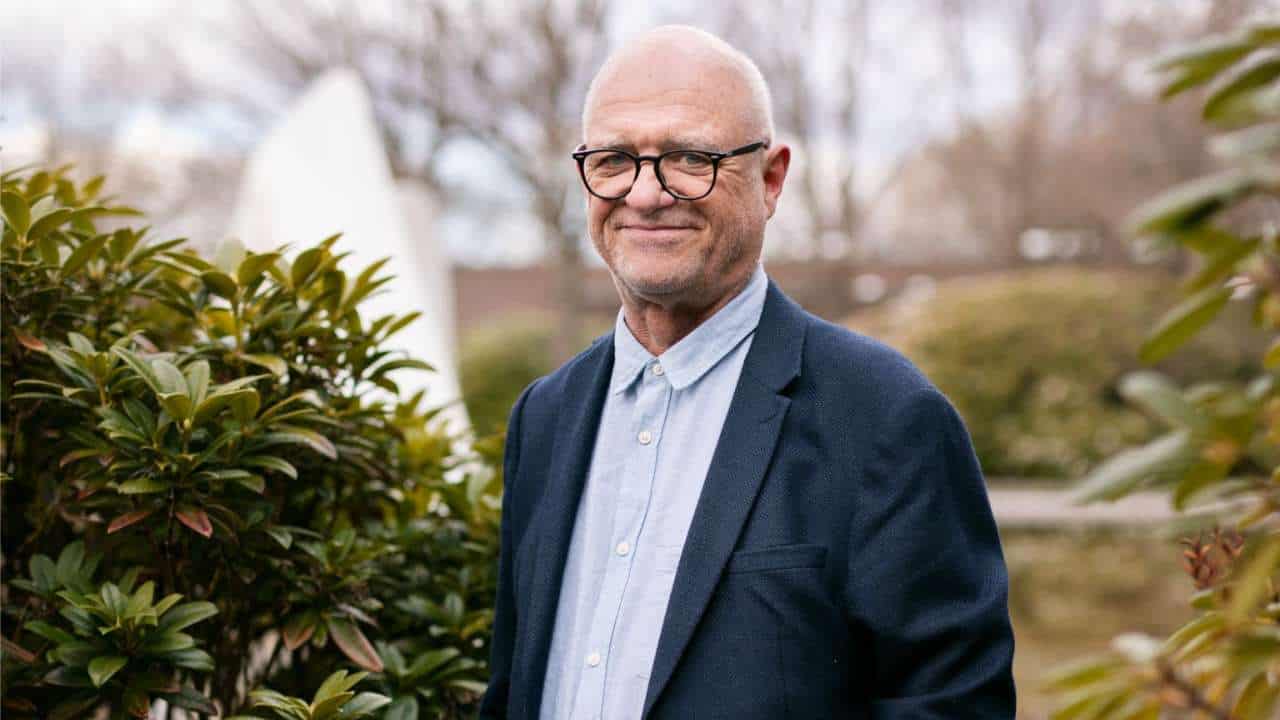
Are today’s NGOs up to date on PVC?
07/09/2022The MedTech Forum is the largest health and medical technology industry conference in Europe. PVCMed Alliance and VinylPlus® Med were invited to share experiences on circular healthcare at this year's MedTech Forum.
As PVC is the most used polymer in healthcare and because the European PVC industry has pioneered the recycling of single use medical devices, two representatives from the PVC industry were invited to speak at The MedTech Forum 2022: Ole Grøndahl Hansen from the PVCMed Alliance and Vincent Stone from VinylPlus® Med. In two panel discussions, the invited speakers – also including Laurens van Houte, Manager of the Surgical Department at Medisch Spectrum Twente and chemical expert Renata Jovanovic from Deloitte – gave their views on which sustainability challenges the healthcare industry is facing and how to make the use of plastic in healthcare more circular.
In the first panel discussion on 4 May, the speakers gave an overview of the sustainability journey taken so far by the healthcare industry. The second panel discussion on 5 May looked at how the MedTech companies could further help to speed up a sustainable transition in healthcare.
PVC is controversial but irreplaceable
Ole Grøndahl Hansen from PVCMed Alliance said that the audience might wonder why as many as two representatives from the PVC industry were invited to discuss sustainability at the MedTech Forum. He said it was obvious to investigate the circular options of PVC because the plastic is the most used material for disposables. A new market study shows that almost 30% of all plastic-based medical devices are made of PVC. The remaining 70% are split between more than 10 polymers.
Ole Grøndahl Hansen stressed that despite PVC’s controversial status in Europe, the market study revealed that the material is expected to retain its dominance in the coming decade. The reason is simple: PVC can meet a wide range of technical requirements at a low cost.
Ramboll: PVC alternatives not without technical drawbacks
Ole Grøndahl Hansen also presented a new report on PVC by the European Commission, titled PVC in the context of a non-toxic Environment. Among many other PVC applications, the 450-page report focuses on medical PVC. In the report it is concluded that alternatives exist to almost all medical devices which are currently manufactured in PVC. However, if PVC is substituted it will not be without technical drawbacks and come with a significantly higher cost for the health sector. More worryingly, the report concludes that alternatives are not always preferable due to the presence of substances of concern. Therefore regretful substitution cannot be excluded.
As the best possible performance is essential to medical equipment, Ole Grøndahl Hansen stated that the health sector will never accept devices which may deteriorate patient safety. Ole Grøndahl Hansen concluded by asking if it makes sense to substitute PVC today – not least because it is easily recyclable and safe alternatives to unwanted orthophthalates are listed in the European Pharmacopoeia.
Design for mechanical recycling
Vincent Stone from VinylPlus® Med said that the eco-efficient mechanical recycling of non-infectious PVC disposables (tubing, masks, bags) have been successfully implemented since 2009 in eight countries. In January 2022, a new scheme called VinylPlus® Med was rolled out in Belgium to collect non-DEHP PVC disposables and recycle them into long-life products used in healthcare settings. Today, thanks to a strong value chain collaboration with a waste management company and a recycler, medical PVC disposables are collected at four Brussels hospitals and 29 are on the waiting list.
Vincent Stone called on the MedTech industry to contribute to more circular healthcare systems. The first recommendations focused on designing the disposables for mechanical recycling. A first recommendation was made to avoid substances of concern in REACH, such as DEHP. Recyclates containing such substances have less to no opportunity to be used in new products marketed in Europe. A second recommendation was made to avoid multi-layer products and reduce as much as possible the number of different polymers used. A mix of polymers makes recycling very difficult and generates recyclates of poor quality. Thanks to its ability to be formulated for both soft and rigid parts, PVC is ideal to meet these recommendations.
In addition, Vincent Stone proposed to implement a more comprehensive labeling system, for instance using a QR code, that would indicate the type(s) of polymer(s) used to the users needing to sort the consumables into different recycling streams.
In conclusion, Vincent Stone stressed that because plastic recycling is not for free, costs should be fairly shared between all stakeholders in the medical device value chain.

